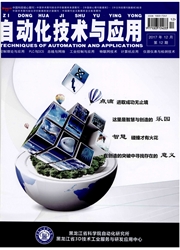

 中文摘要:
中文摘要:
锅炉效率是表征锅炉运行经济性的一项重要指标。针对目前锅炉能效测试存在试验周期长等问题,提出一种燃油锅炉效率软测量方法。在合理选取输入变量的基础上,建立基于最小二乘支持向量机(LSSVM)的锅炉效率预测模型,并利用粒子群优化算法(PSO)对其进行优化。预测结果表明基于粒子群优化的最小二乘支持向量机模型能较为准确地预测锅炉效率。同时运用了交叉验证(CV)优化的最小二乘支持向量机和BP神经网络(BPNN)模型进行预测并进行三种模型性能的对比。对比结果表明,基于粒子群优化的最小二乘支持向量机锅炉效率预测模型具有预测精度高、预测速度快等优点,将其应用于燃油锅炉的效率测量和优化改造具有一定的指导意义。
 英文摘要:
英文摘要:
Boiler efficiency is an important indicator to characterize the operational economy of boilers. Considering there are some disadvantages like long test period in traditional boiler efficiency test, a soft measurement method of oil-fired boiler efficiency is proposed. With the input variables selected properly, the prediction model of boiler efficiency is developed based on least squares support vector machine (LSSVM), which is optimized by particle swarm optimization (PSO). The results show that the model can predict the boiler efficiency accurately. Two prediction models which apply LSSVM optimized by cross-validation (CV) and BP neural network (BPNN) respectively are also developed and the performance comparison of the three models above is conducted. The results indicate that, compared with the other two models, the PSO-LSSVM model predicts the boiler efficiency more precisely and costs less time. It presents a certain significance to apply the prediction model to the efficiency measurement and optimal modification of the oil-fired boilers.
 同期刊论文项目
同期刊论文项目
 同项目期刊论文
同项目期刊论文
 期刊信息
期刊信息
